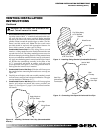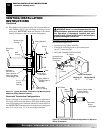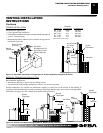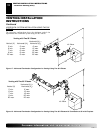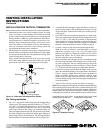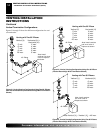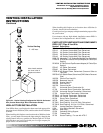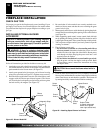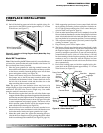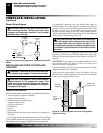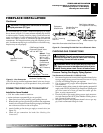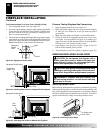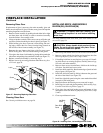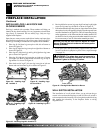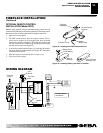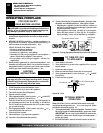Special offers from our partners!

Find Replacement BBQ Parts for 20,308 Models. Repair your BBQ today.
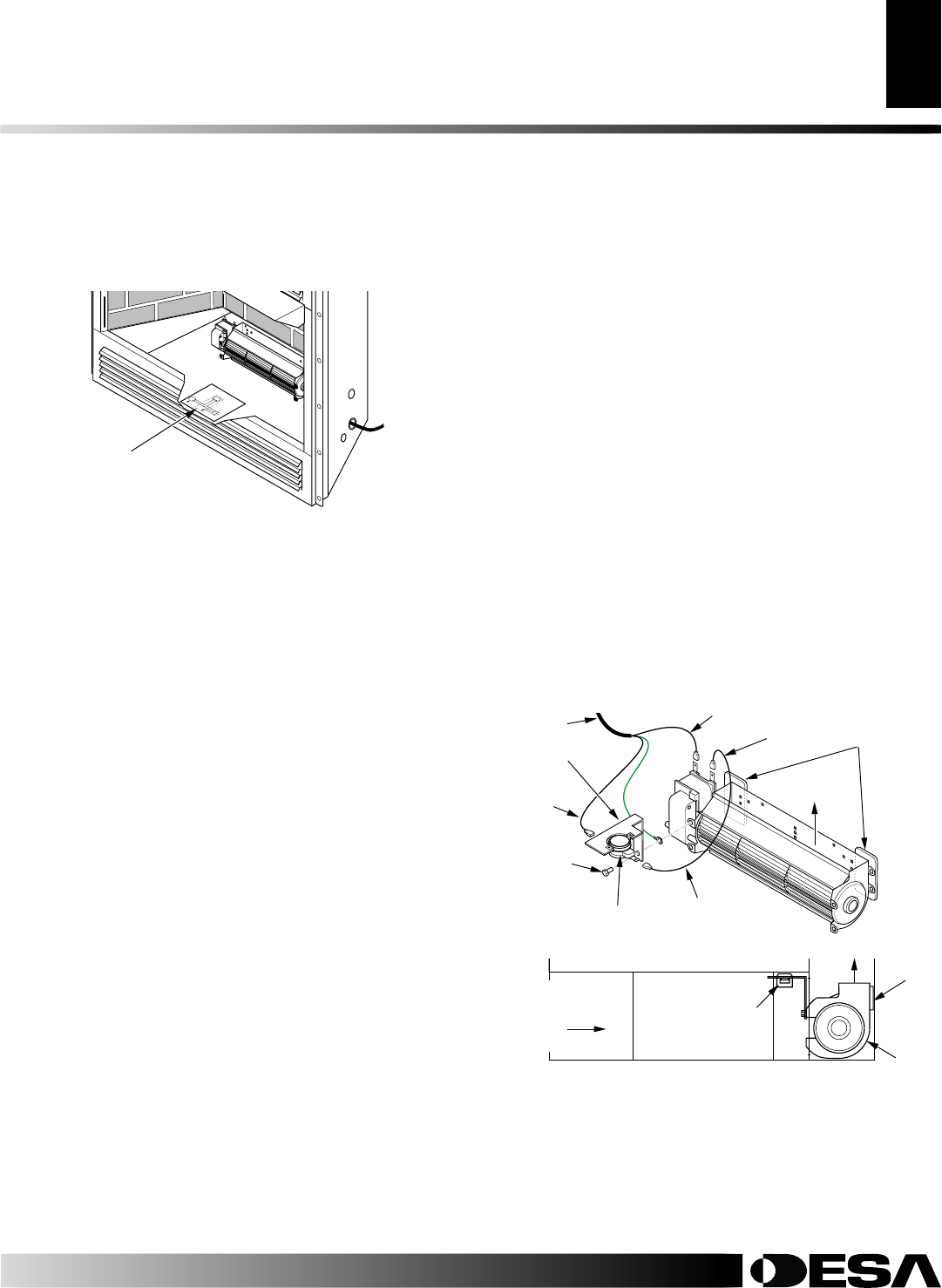
111922-01A
For more information, visit www.desatech.com
For more information, visit www.desatech.com
17
17
V
a
r
i
a
b
l
e
F
a
n
S
w
i
t
c
h
W
h
i
t
e
W
h
i
t
e
B
la
c
k
G
re
e
n
O
n
1
1
0
/
1
1
5
V
.
A
.
C
.
Blower
Motor
B
l
a
c
k
B
l
a
c
k
B
la
c
k
O
f
f
Figure 27 - Location of Wiring Diagram Decal (Model May Vary
From Illustration)
Wiring Diagram Decal
12" in Front of Blower
FIREPLACE INSTALLATION
Installing Optional Blower Accessory (Cont.)
FIREPLACE INSTALLATION
Continued
Thermodisc
Figure 28 - Blower Model BKT
Air Flow Direction
Route BKT
Blower Through
This Area
Magnets
Blower
Location
Side View Firebox Bottom
Black
Wire
Phillips
Screw
Blue Wire
Ring Terminal
on Green Wire
White Wire
Thermal Switch
Thermal
Switch
Bracket
Power Cord
Air Flow
Direction
Magnetic
Strips
Model BKT Installation
Note:
When installing the BKT thermostatically-controlled blower,
you must first secure the thermal switch bracket to the blower if it
has not already been factory installed.
1. Place the green ground wire with ring terminal between the
bottom hole on the thermal switch bracket and the top ear hole
on the blower assembly. Insert the phillips screw into all three
pieces and tighten securely (see Figure 28).
2. Connect wire harness and power cord terminals. Connect the
blue jumper wire to the blower motor terminal and the right
side terminal of the thermal switch. Connect the black wire to
the left side of the thermal switch and the white wire to the
other remaining blower motor terminal.
Note:
The power cord outer insulation sleeve may have to be
stripped slightly to allow enough wire length to reach and make all
connections. DO NOT trim excessive length away. Just enable
enough to make all connections securely.
3. Place the blower against the lower rear wall of the firebox outer
wrapper with the exhaust port directed upward and the thermodisc
positioned up near the fireplace bottom. The thermodisc must be
oriented near the fireplace bottom as shown in Figure 28 in order
to sense temperature and properly operate. The blower will be
held in position against the back wall by the magnets incorpo-
rated onto the blower housing (see Figure 28).
4. Be certain that all wire terminals are securely attached to ter-
minals on blower motor and thermal switch, and that the screw
for the thermodisc bracket and green ground wire is tight.
5. Mount the speed control box against the mounting plate pro-
vided in the lower fireplace cavity by placing the plastic control
shaft forward through the round hole (see Figure 26, page 16).
10. Peel off the backing paper and stick the supplied wiring dia-
gram decal on the firebox bottom approximately 12" in front
of the blower (see Figure 27).
6. While supporting speed control, secure control shaft with lock
nut by pushing and turning lock nut with pliers clockwise un-
til it is tight against mounting plate. Place control knob pro-
vided on shaft (see Figure 26, page 16).
7. Check to make sure that the power cord is completely clear of the
blower wheel and that there are no other foreign objects in blower
wheel. Also double check all wire leads and make sure wire rout-
ing is not pinched or in a precarious position. Correct accordingly.
8. Turn on power to duplex outlet if previously turned off per the
warning in column 1, page 16.
9. Plug in blower power cord to duplex outlet.
10. The blower will only run when the speed control knob is in the
ON position and the thermal switch senses temperature after
the fireplace begins to heat up. The blower speed can be ad-
justed by rotating the control knob. To turn off, turn knob fully
counterclockwise until it clicks off. If the blower is ON and
has been running with the fireplace operating, the blower will
continue to run for a short time after the fireplace has been
turned off. As the thermal switch cools down, the blower shuts
down automatically.
11. Peel off the backing paper and stick the supplied wiring dia-
gram decal on the firebox bottom approximately 12" in front
of the blower (see Figure 27).
.



